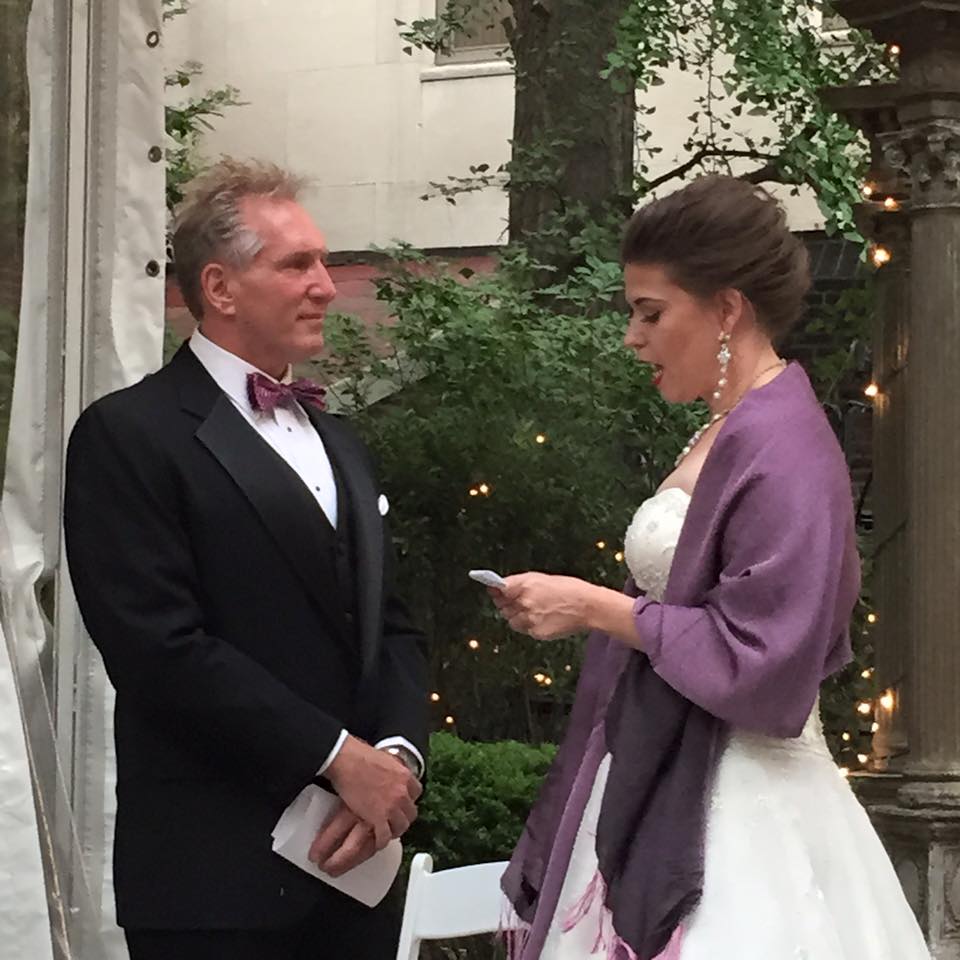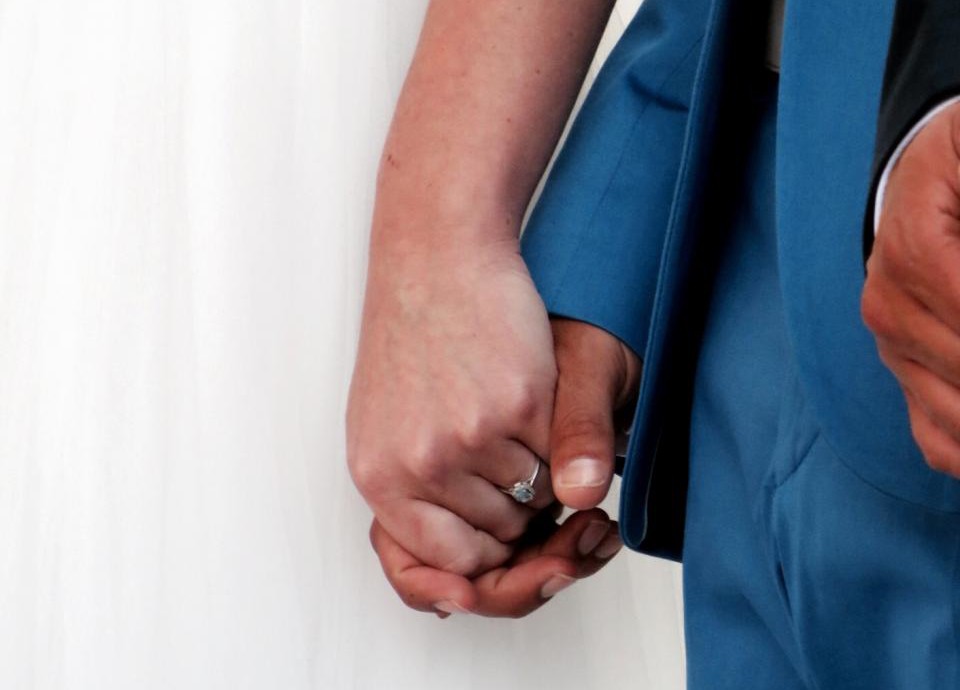I got married recently. It was a beautiful event and we had a fantastic time.
Hours prior to the wedding, I realized that the prospect of people calling me something other than I’ve been called my entire life — Ms. Paula M. Jones — seemed to be at issue. When our place cards arrived from the printer my name had been printed with my soon-to-be-husband’s last name, rather than my own. I immediately showed it to my husband-to-be, assuming it was his joke, since he knew how strongly I felt about keeping my name.
He really didn’t have anything to do with it. It turns out the ladies at the printer were trying to be celebratory — and they assumed I was changing my name. Well, I’m not.
I guess I’m one of those women who views her relationship as purely personal. Partnering up doesn’t change my identity or my place in society, as it might have historically. I realize everyone has their own unique and personal view of what their own marital status really means to them, but I’m also disappointed with how many people still view marriage, especially for women, as a higher status than any other. This has been brought to light especially for me through my own process of engagement, wedding planning and the wedding itself.

Photo Courtesy of Paula
When I told an acquaintance that I was getting married he said, “Well, better late than never.” I replied, “Well, better late than wrong.” I was single for the first 44 years of my life and I highly recommend it. I also highly recommend partnering up with your best friend. Both of those experiences are what make my life so joyful and balanced. As wonderful as it is to find one’s life partner, this does not diminish the importance of all other aspects of any individual’s life, including other relationships, work, health, community and spirituality. In fact, these aspects should only be enhanced when sharing them with your partner.
I am still surprised at how many people do not understand the differences among “Miss”, “Ms.” and “Mrs.”. “Miss” refers to a woman who is unmarried and “Mrs.” refers to a woman who is married. “Ms.” can trace its origins as far back as 1901, when a writer in a newspaper suggested it as a way of avoiding the faux pas of addressing a woman whose marital status is unknown by the incorrect title. Feminism was not the motivation for the creation of “Ms.” but merely etiquette.[1] Discussions about the use of “Ms.” made the occasional resurgence in later decades but did not catch on until about 1970 when its use was adopted and advanced by the feminist movement.
I remember when, as a young woman, I decided to use “Ms.” as my title. I didn’t like the choice of a title that defined me by my marital status. Men are addressed as “Mr.”, which does not reveal their marital status. Why shouldn’t a woman’s title afford her the same level of respect regardless of her personal life?
Traditional titles for women reflect the historical practice of defining women by their connection to men. Meanwhile, men have no such distinction, reflecting their status as viable adults with an automatic place in society simply because they exist — not because they are connected to anyone else.
Unfortunately, historical beliefs still persist and there are still too many who feel that a married woman has a higher worth than that of a single woman. I had plenty of experience over my 44 years of singlehood to hear just about every stereotype about my chosen status. I was treated by some as one who was “waiting” for something, as if my life had not yet begun or as someone who had no real life experience or was not yet quite an adult until I was married.
If someone uses the title “Mrs.” does this mean she endorses these stereotypes? Absolutely not. For many, “Mrs.” can be a happy recognition of their marriage, rather than a denouncement of their former single status. I suspect that for many, very little thought has gone into any particular title at all but is instead an automatic adoption of a social norm. All of us, however, can probably relate to when someone uses a particular word to describe us and after a while, it begins to bother us. Usually, we are bothered because a word, title, phrase or label carries with it a history or a judgment that we wish to transcend.
For instance, the term “black” has largely been dropped in favor of “African-American”, which recognizes and celebrates one’s African ancestry and culture in America, rather than defining one by skin color alone. I still hear some people refer to me as a “woman lawyer”, which references a history in which women were not allowed to be lawyers. Now, about half of all new lawyers are women. On the one hand, people qualifying me as a “woman” lawyer could be celebrating the fact that I am someone participating in the equalization of a profession. On the other hand, characterizing me as an exception to a rule, when I am no longer an exception, can perpetuate the stereotype that it is out of the ordinary for women to be lawyers. In a similar vein, I have begun to hear people say we should be dropping the qualification of “gay” marriage and simply use the term “marriage” to treat a committed couple’s gender as irrelevant.

The ultimate respect of another’s freedom is to address her in exactly the way she wishes. A client of mine, who has been widowed longer than she was ever married still calls herself “Mrs. John Smith” and that is exactly how I address her. I can’t say I haven’t rolled my eyes and assumed that she feels her identity is still based on her relationship to a man from long ago. Nevertheless, I hope that just as I respect her desire to be addressed in a certain way, she respects my desire to be addressed as “Ms.” regardless of my recently changed marital status.
I am thrilled to have found my husband but I do not wish to embrace a title with a history of connecting a woman’s union with her worth, position or status. That is why I use “Ms.”, have never used “Miss” and will never use “Mrs.”. It is to recognize the fact that a woman’s life is full of viable experiences and it is up to her how she identifies herself. It is to remove one of the symbols of historical limitations placed on women and to celebrate a woman’s freedom to live according to her own rules and no one else’s.
——————————–
[1] Zimmer, Ben, “Ms.”, The New Yorker Magazine, October 23, 2009
Small Epiphanies: Subtle Insights to Transform Your Life is a website dedicated to inspiring its readers to live better, more self-aware lives and to experience greater happiness.
 Paula M. Jones, writes and speaks about personal development and spirituality to share the lessons she learned overcoming obstacles in order to inspire others to do the same. She is a featured blogger on BlogHer and she previously authored Staying Connected, the Hoffman Institute Foundation’s newsletter. A lawyer by day, she and her husband split their time between city living in Philadelphia and country life in Bucks County.
Paula M. Jones, writes and speaks about personal development and spirituality to share the lessons she learned overcoming obstacles in order to inspire others to do the same. She is a featured blogger on BlogHer and she previously authored Staying Connected, the Hoffman Institute Foundation’s newsletter. A lawyer by day, she and her husband split their time between city living in Philadelphia and country life in Bucks County.
Learn more at http://www.small-epiphanies.

